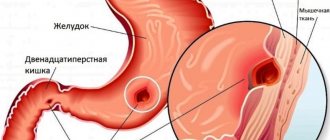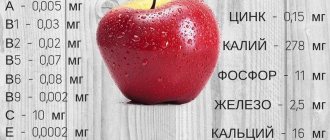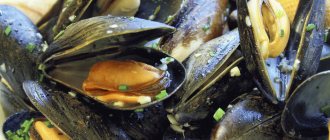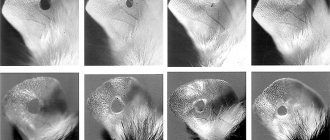Can onions give you a stomach ache?
If we consider the moderate and irregular consumption of onions by a healthy person, then this product does not cause any negative symptoms. Painful sensations occur in cases where there are any gastrointestinal diseases.
Let's look at why your stomach hurts after eating onions.
Gastritis
This disease occurs in a chronic form. It is characterized by inflammatory and dystrophic processes of the mucous membranes and deterioration of regenerative functions. During the disease, some epithelial cells are replaced by fibrous tissue. This occurs under the influence of an increased amount of gastric juice.
The progression of gastritis causes abnormalities in the gastrointestinal tract. First of all, the secretory function is disrupted. In its acute form, the disease manifests itself with vomiting, diarrhea and severe pain. Exacerbation is most often provoked by spicy or hot food. Onion also acts as a strong irritant in this case.
Stomach or duodenal ulcer
Local damage to the mucous membranes of the gastrointestinal tract . In some cases, the submucosal layer is also affected. Under the influence of excessive amounts of gastric juice, wound surfaces appear.
The disease is characterized by a relapsing course. There are stages of remission and exacerbation. In this case, the person must follow a strict diet. Eating irritants can lead to relapse.
Poisoning
After poisoning, pain often appears. After severe irritation, the mucous membrane needs time to recover.
Under the influence of substances contained in onions, the secretion of gastric juice is accelerated. This causes inflammation and pain to increase.
Gastroenteritis
This disease affects the small intestine and gastrointestinal tract. The disease is provoked by E. coli, viruses and other pathogens. Gastroenteritis often occurs in an acute form.
The disease is characterized by diarrhea, vomiting and severe pain. The patient requires diet and special therapy. Spicy foods, including onions, are completely prohibited. If you neglect this rule, symptoms are likely to return.
Pancreatitis
Combines a group of diseases and syndromes characterized by inflammation in the pancreas. In this case, the enzymes secreted by the pancreas do not enter the duodenum, but begin to act on the spot. This gradually leads to tissue destruction.
When treating pancreatitis, spicy foods are excluded.
Onions give me a stomach ache
Typically, consumption of the product in question in moderate quantities in healthy people does not cause any symptoms.
The most common causes of pain after consuming savory vegetables are diseases associated with gastrointestinal dysfunction.
Did you know? In the Middle Ages, knights always took a supply of bows with them on crusades. The French used it not only for food, but also as an exchange currency - for 8 onions you could ransom a captured comrade from the enemy.
Causes of pain
The main reasons causing pain after eating raw onion crops:
- Gastritis is a chronic disease. It is characterized by inflammatory and inflammatory-dystrophic changes in the mucous membranes with impaired regenerative functions. During the course of the disease, some of the epithelial cells and normal glands are replaced by fibrous tissue, under the influence of an increased amount of gastric juice. The progression of the disease leads to deviations in the functionality of the gastrointestinal tract, primarily secretory. The acute phase can be manifested by severe pain, vomiting, and diarrhea. An exacerbation can be caused by a one-time exposure to an irritant - spicy, salty, hot food or the ingestion of chemical irritants or certain groups of drugs into the body.
- An ulcer is a local disorder in the mucous membranes of the gastrointestinal tract, sometimes even involving the submucosal layer. In other words, wound surfaces are formed on the mucous membranes under the influence of hydrochloric acid, pepsin and bile secretions. This disease is characterized by a relapsing course, manifested by phases of remission and exacerbations. Typically, exacerbations occur seasonally (spring and autumn). When the ulcers heal, scars remain on the mucous membranes.
- Poisoning – after poisoning, painful sensations may occur. The fact is that after severe irritation, the mucous membranes need to recover, and under the influence of the substances contained in onions, gastric juice begins to be released faster, which leads to even greater inflammation of the affected tissues.
- Gastroenteritis is a disease that affects the gastric tract and small intestine. It is caused by viruses, E. coli, and other pathogens. It manifests itself more often in an acute form, less often a chronic course is observed. Main symptoms: vomiting, diarrhea, severe pain. With a lesion of this nature, special therapy and a diet are needed that excludes spicy foods, such as bulbous crops. Neglect of these requirements leads to the resumption of symptoms of the acute phase.
- Pancreatitis unites a group of diseases and syndromes characterized by the presence of inflammatory processes of the pancreas. With this disease, enzymes from the pancreas do not enter the duodenum, but begin to act immediately on the spot, which leads to tissue destruction. Treatment of such a disease also involves restrictive diets that exclude spicy foods.
Eating onions for gastritis and peptic ulcers
Whether or not it is possible to consume raw onion crops for gastritis and peptic ulcers is decided by the attending physician , based on the individual characteristics of the patient and the intensity of the disease. Many experts recommend introducing the product in question into the daily diet in limited quantities for patients with gastritis, in order to avoid the formation of ulcers on the walls of the gastrointestinal tract. Due to the content of phytoncides and a number of minerals in combination with vitamins, the vegetable has an antibacterial effect, preventing the proliferation of Helicobacter pylori bacteria, which most often provoke the development of the disease. But, when ulcers appear, you should immediately exclude onions from your diet.
Important! Before introducing raw onions into your diet, be sure to consult your doctor.
In addition, before consumption during gastritis, vegetables must undergo heat treatment, during which the pungency goes away and the beneficial substances are preserved. To prevent stomach pain, you can eat no more than 100–200 g of boiled, steamed or stewed onions per day as part of dishes (stews, soups).
During periods of remission for gastritis, it is allowed to introduce fresh onion feathers into the diet as part of salads. You are allowed to eat no more than 50 g per day. At the same time, you need to monitor your health and your body’s reaction to food. If symptoms such as bloating, nausea, belching, or pain occur, you should immediately exclude the product from your diet.
Learn about the benefits of using onions for diabetes.
Causes of pain after eating onions
After mechanical processing in the oral cavity, food enters the stomach, where it is fermented. Not all foods have the same effect on the activity of gastric juice.
Nutritionists are well aware of the properties of spicy foods that increase appetite. An increase in appetite means that the stomach will secrete more gastric juice.
Onions are one of those foods that affect the acid balance of the gastrointestinal tract. This is due to the content of active volatile compounds (phytoncides) and essential oils that destroy pathogenic bacteria.
If the onion has not been heat-treated, it will be irritating to the gastric mucosa. And irritation provokes an increased secretion of hydrochloric acid. As a result, heartburn, discomfort and pain appear, especially if a person already has gastrointestinal diseases.
Raw
Stomach pain after eating onions usually occurs in the presence of gastritis, ulcers or other diseases.
Onion juice (which is especially abundant in raw onions) further irritates the already affected mucous membrane, which leads to unpleasant symptoms. Excessive secretion of hydrochloric acid by the stomach aggravates the situation.
Green
For gastrointestinal diseases, it is not recommended to eat onions, even in the form of green feathers. It burns the stomach, causing pain. Although it is greens that contain the largest amount of vitamins C, A and B, and phytoncides destroy bacteria that provoke gastritis. But in this case, the advantages of the onion are offset by its negative impact.
Fried
Healthy people are advised to consume fried onions in moderation. And those who have acute gastrointestinal diseases should not eat it at all. It negatively affects the stomach and worsens the course of diseases. Although pain after eating fried onions is observed less often than from raw ones.
Eating onions for gastritis, ulcers and other stomach diseases
In case of chronic disease or in remission, onions are used with caution. During an exacerbation, this product is completely prohibited.
Is it possible to eat and in what form?
There is no categorical prohibition on use for gastrointestinal diseases. It is important how much onion you eat and in what quantity. Sometimes the product itself can provoke the development of the disease, especially if it is consumed fried. When there are prerequisites for a stomach ulcer, onions can aggravate the situation.
If there is any, it is only in feathers and only a few pieces per day.
Harm of onions for stomach diseases
Whether it is possible to eat onions with gastritis depends on the form of the disease. In case of an acute condition, the patient is prescribed a strict diet, which completely excludes foods that are difficult to digest from the diet. During acute gastritis, onions are contraindicated, as they provoke increased secretion of gastric juice. The hydrochloric acid contained in it leads to inflammation of the stomach.
After eating onions, the patient experiences the following symptoms:
- nausea;
- burning sensation in the esophagus;
- bloating;
- sharp pain in the stomach.
In addition to these symptoms, frequent belching and constipation appear. Onions irritate the mucous membrane, which slows down the healing process. During gastritis with low stomach acidity, the product is allowed in small quantities and only after heat treatment.
At the remission stage, the diet is allowed to expand, so onions are gradually introduced into the menu. But at the same time, the patient must constantly monitor his condition and pay attention to the occurrence of side effects. If symptoms of gastritis appear, onions are immediately abandoned. If the condition worsens, the patient should consult a doctor as quickly as possible to prevent relapse.
With a stomach ulcer, the patient feels pain in the intestines. This is a chronic disease. Ulcerative lesions appear as wounds on the mucous membrane. In addition to pain in the intestines, stomach ulcers cause heartburn, nausea, stool disturbances, and a greatly reduced appetite. In addition, a person constantly feels heaviness in the abdomen.
Onions can provoke the formation of new ulcers. It is used only during the remission stage. It is important to follow certain rules:
- Use only in crushed form.
- After heat treatment.
- Along with unsalted side dish.
- When used as a component of a dish, onions are stewed or boiled.
It is best to steam the vegetable. So it has minimal negative impact on the damaged mucous membrane. A stomach ulcer is a serious disease that requires strict adherence to all recommendations.
In acute pancreatitis, onion consumption is completely prohibited. This is due to the following points:
- The vegetable contains essential oils and organic acids. These substances promote the production of pancreas, a secretion that breaks down pancreatic tissue.
- Fiber increases peristalsis. Because of this, dyspeptic complications appear, which are extremely dangerous with pancreatitis.
- Citric, malic and ascorbic acids contained in the vegetable provoke the release of food enzymes and pancreatic juice, which stimulates the pancreas to self-destruct. This leads to a deterioration in the patient's condition.
After heat treatment, the product loses some of the substances that cause harm. But this is not enough to make onions safe for the inflamed pancreas. Therefore, onions are introduced into the diet only after the symptoms of exacerbation of the disease have completely gone away.
In case of chronic pancreatitis, doctors allow the use of this product, but only after heat treatment. It is added to vegetable purees, casseroles, steamed cutlets, etc. For chronic pancreatitis, onions can be eaten boiled, stewed, blanched and baked. Fried food should not be consumed.
Attention! Doctors allow eating raw onions only if there is a long-term and stable remission. But it is still pre-crushed and doused with boiling water.
How do onions affect the stomach?
Onions have a stimulating effect on the digestive system and metabolism. Phytoncides and essential oils activate the work of the gastric glands located in the surface layer of the epithelium. This provokes the release of additional gastric juice. Such a load does not harm healthy people. But patients with gastrointestinal diseases should pay attention to this.
How to eliminate stomach pain after eating onions
If your stomach starts to hurt after eating onions, proceed as follows:
- Drink 2-3 glasses of clean water in small sips.
- Take the drug "Riabal" in accordance with age recommendations.
- Lie down on the bed for about 20-30 minutes.
After the pain has reduced, it is advisable to immediately consult a doctor. If the pain is severe, you will have to call an ambulance, as this indicates serious problems that cannot always be relieved at home.
Important! Onions are introduced into the diet gradually, starting with 10 g per day. If everything is fine, add 5-10 g of product daily.
How to eliminate pain and symptoms?
If your stomach starts to hurt after eating onions, you need to take the following steps:
- Drink 2-3 glasses of water in small sips.
- Take Riabal in the recommended dosage for age.
- Lie down for a bit.
After the intensity of the pain decreases, you should immediately consult a doctor to identify the cause of this condition. If the pain is too severe, you should immediately call an ambulance, because some gastrointestinal diseases may be asymptomatic, and severe pain after consuming onions may indicate serious disorders that cannot be relieved at home.
Important! When introducing fresh root vegetables from bulbous crops into your diet, do it gradually, starting with 10 g of the product. If the body reacts normally, increase the portion by 5–10 g daily.
In the presence of gastrointestinal diseases, consumption of raw onions can cause unpleasant painful sensations and provoke their exacerbation. If you experience bloating, nausea, or cutting pain, you should immediately exclude such food from your menu and seek qualified help from a doctor.










